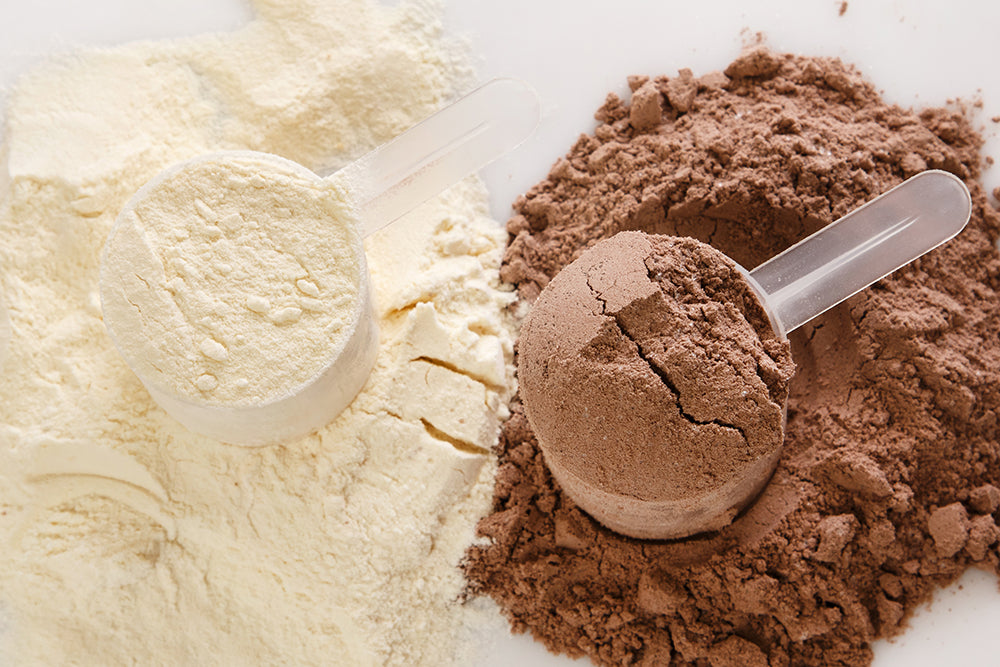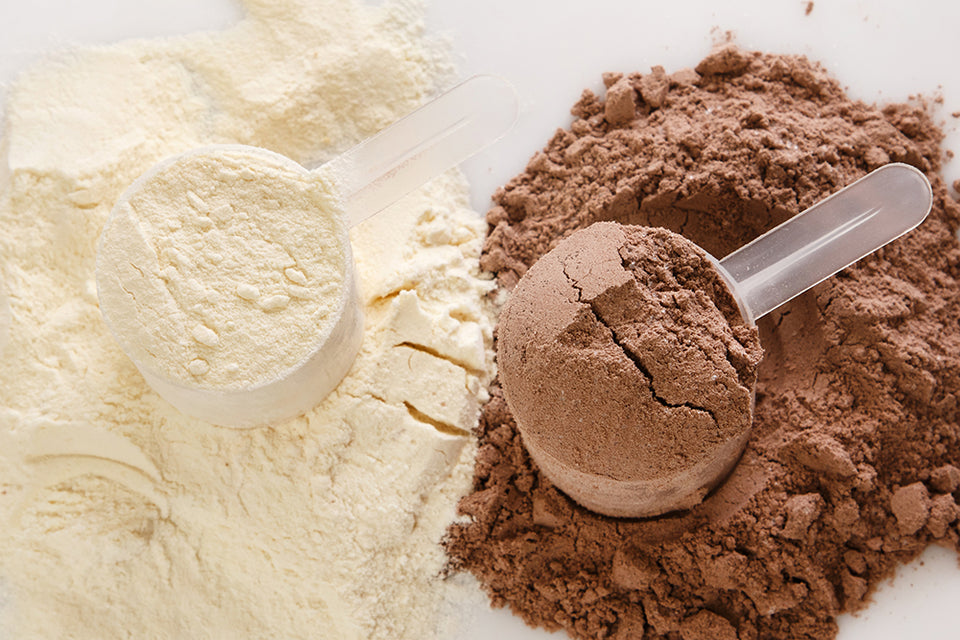Whey and casein are two of the most popular proteins in the world. Walk into any supplements store these days, and you’re bound to see dozens of these proteins on the shelves.
The question is, what are whey and casein protein, and how do they benefit us
Today, we’ll go over everything you need to know about them. Let’s dive in.

What Are Casein and Whey Proteins?
Before we can answer this question, we first need to have a bird’s eye view of what protein is in the first place.
Proteins are organic molecules that are composed of amino acids – the building blocks within living organisms. Depending on the protein source, each molecule consists of varying amounts of different amino acids. Some proteins are complete and of a higher quality; others are incomplete and are of lesser quality. So, protein quality and diversity very much matter.
Speaking of protein quality, we have the three types of amino acids – essential, nonessential, and conditionally-essential. The essential amino acids are those which the body cannot produce itself, so we must get them through food. Nonessential amino acids are those, which the body can produce itself, and we don’t have to worry about getting them through food. And finally, the conditionally-essential ones are which the body can typically produce, but may not be able to under some circumstances.
With that out of the way, let’s take a look at whey and casein:
Whey Protein
Whey protein is the substance that gets isolated from whey – the clear liquid that separates from dairy during the production of cheese.
In the old days, before people knew the potential of whey, this clear liquid used to get discarded. Then, as people discovered that whey is full of this leucine-rich protein, they began producing it as an isolated product.
These days, whey protein supplements are on the shelves of every physical and digital supplements store around the world.
Casein Protein
Similar to whey, casein is also derived from dairy and accounts for the majority of the milk’s protein content. The small percentage that remains is whey.
Unlike whey, however, casein tends to get digested more slowly, and this primarily has to do with its unique characteristics. As you consume it, casein turns into a gel, and that prevents it from getting broken down quickly. This, in turn, allows for a steadier release of amino acids into our bloodstream.
Also, thanks to casein’s unique ability to turn into a gel, manufacturers sometimes use it as a filler or binder in some products.
What Benefits Do Whey And Casein Proteins Offer?
Now that we have a good understanding of these two proteins, let’s take a look at what benefits they offer:
1. Whey And Casein Have Fantastic Amino Acid Profiles
Whey and casein are widely regarded as fantastic protein sources because they offer high-quality protein that has all of the essential amino acids.
As far as their rate of digestion goes, whey tends to digest more quickly than casein, and this is most likely because of the delayed gastric emptying related to casein ingestion.
2. Both Proteins Are Satiating And Help With Hunger Control
Protein, as a whole, is a satiating nutrient, and consuming more of it while dieting to lose weight is a fantastic way to control hunger. Typically, you will feel a lot fuller from a steak than you would from a serving of pasta.
Whey and casein both seem to be satiating, so taking them as part of a calorie-restricted diet could be incredibly helpful.
3. Both Proteins Stimulate Muscle Recovery and Growth
Thanks to their rich amino acid profile, both casein and whey seem to be incredibly beneficial as far as muscle recovery and growth are concerned.
In some research, whey appears to cause a higher rise in muscle protein synthesis when compared to casein. But, that is more likely a result of the slower absorption of casein, rather than any inherent superiority of whey. On the other hand, casein seems to slow down protein breakdown better than whey.
4. Both Are Convenient And (Relatively) Cheap Sources of Protein
Most people have a hard time believing that protein powders offer a relatively cheap source of protein. This mostly has to do with the fact that you have to spend more money upfront. But, when compared to most other sources of protein (meat, fish, eggs, etc.), both casein and whey offer quality at an affordable price.
This, in combination with the ease, convenience, and versatility, makes protein supplements a perfectly viable option for everyone who cares about their daily protein intake.

Leave a comment